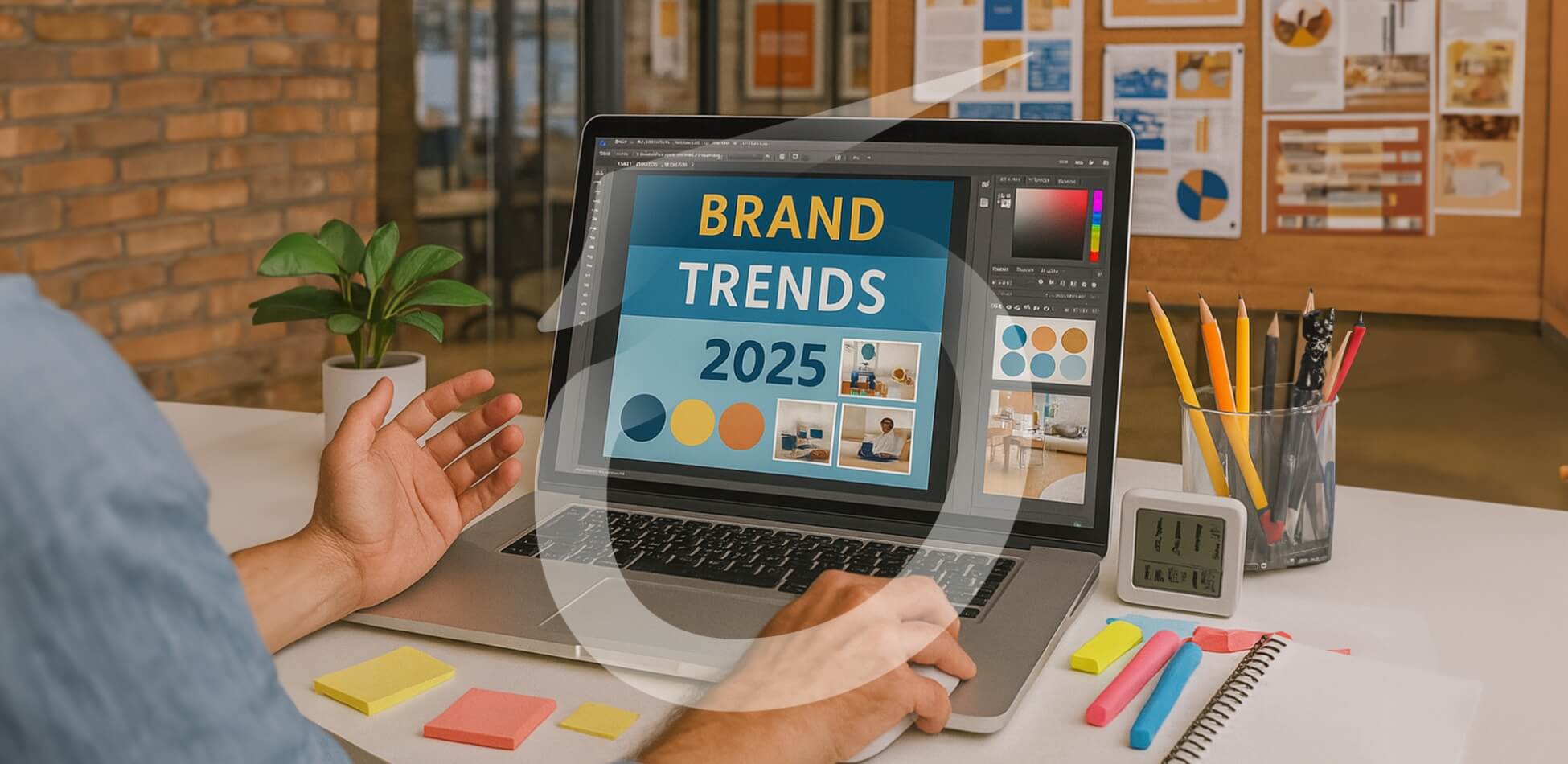
In an increasingly fragmented, fast-moving world, branding is no longer just about logos, colors, and catchy taglines. It’s about resonance – with culture, values, emotions, and data. As we move into 2025, the brand strategy landscape is evolving at unprecedented speed, shaped by technology, shifting consumer psychology, and a demand for more authentic, value-driven brand experiences.
For brand design consultancies, staying ahead of the curve isn’t optional — it’s existential.
Here’s a deep dive into the top global branding trends for 2025 every strategic design consultancy must embrace, adapt to, and lead with.
2025 is the year AI ceases to be a trend — and becomes infrastructure.
Tools like ChatGPT, Midjourney, DALL·E, and Runway are not just assisting creatives anymore; they’re shaping ideation, speeding up prototyping, and enhancing customer insight through predictive analytics.
Branding consultancies that integrate AI in brand design workflows will be able to scale smarter, create faster, and test better.
But here’s the kicker: The winners will be those who combine AI precision with human intuition – emotional intelligence, cultural nuance, and narrative depth.
Key takeaway: Use AI as a co-creator, not a replacement. Blend algorithms with artistry to create emotionally resonant, data-backed brand experiences.
Keywords in play: AI in brand design, branding automation software, AI tools for branding
Sustainable branding is no longer about greenwashing or optics — it’s about radical transparency.
Consumers, especially Gen Z and Gen Alpha, demand proof, not promises. In 2025, brands are expected to demonstrate their environmental impact in tangible, measurable ways – through lifecycle branding, carbon offset certifications, ethical sourcing, and zero-waste design thinking.
Design consultancies must go beyond the visual and explore sustainable brand strategy – from packaging design to digital carbon footprints.
Global stat: 73% of consumers in 2025 say they’re more likely to engage with brands that transparently communicate sustainability efforts (Source: WGSN Insights)
Keywords in play: sustainable branding trends, future of branding, ethical brand identity
Personalization has long been part of the marketer’s toolkit. But now, it’s moving to the next frontier: dynamic brand identities.
Brands are learning to adapt their voice, tone, content, and even product experiences in real time, based on user behavior, preferences, and location. Think Spotify Wrapped, Nike’s custom shoe studio, or Netflix’s tailored thumbnails — but applied to brand storytelling and CX at scale.
For consultancies, this means designing brand systems that are flexible, modular, and responsive, without diluting core identity.
Pro Insight: This trend intersects branding with CX, martech, and data science. Cross-functional thinking is key.
Keywords in play: personalisation in branding, data-driven branding, adaptive brand architecture.
In an overstimulated digital world, clarity is luxury.
The best brands in 2025 will cut through noise with quiet design – minimalistic, elegant, and intentional visual languages that don’t scream but whisper confidence. But make no mistake: behind this simplicity lies a deep clarity of purpose.
We’re seeing a rise in purpose-first minimalist identities – where boldness comes from values, not volume. Think Patagonia, Muji, or Notion.
Design consultancies need to focus on essence extraction – distilling a brand’s value into the purest, most iconic visual form.
Keywords in play: minimalistic brand aesthetics, brand identity trends, visual branding trends.
With the maturing of spatial computing, AR/VR, and haptics, brands are no longer just seen – they’re felt, heard, and experienced in 3D.
From retail metaverse activations to multisensory packaging and digital twins of brand spaces, immersive experiences are becoming part of the branding toolkit.
Brand consultancies must develop capability in XR environments, motion design, and sound branding. Static identity systems are becoming passé – we’re entering the age of living brands.
Case in Point: Coca-Cola’s use of spatial audio in its 2025 “Real Magic” campaign created higher emotional engagement and longer brand recall.
Keywords in play: experiential branding, immersive brand experiences, branding trends 2025.
In a post-pandemic, post-cancel-culture world, brands must behave like citizens, not corporations. The most successful branding in 2025 positions the brand as a contributor to the social fabric – not just a seller.
From inclusive hiring to political stances and community-driven narratives, brands are judged by their actions – not their ads.
Consultancies must guide clients to define clear brand values and ethical boundaries, and build trust-rich identities that evolve with public expectation.
Not Just Strategy: This is governance. Designers are now diplomats.
Keywords in play: customer-centric branding, emotional branding trends, value-driven brand identity.
Say goodbye to rigid, static logos. In 2025, leading brands use modular logo systems that adapt across platforms, geographies, languages, and applications – without losing recognition.
This fluid branding trend reflects the need for agility, localization, and platform-native design.
Design consultancies should adopt identity frameworks that allow flexibility while maintaining consistency – a delicate but necessary balance.
Keywords in play: brand consistency across platforms, logo design evolution, modular brand systems.
In 2025, strategy isn’t just the first step – it is the product.
Design without purpose is decoration. Brand identity without direction is noise. To stay relevant, brand consultancies must be strategic thinkers, cultural decoders, and experience architects — all at once.
Whether it’s leveraging AI for intelligent brand strategy, designing for sustainability, or embracing immersive ecosystems, the rules of branding are being rewritten. And those who lead the rewrite – with clarity, courage, and creativity – will shape the future.